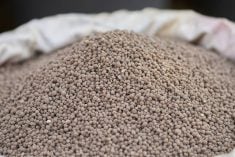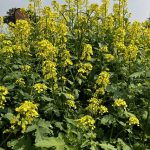The U. S. Food and Drug Administration (FDA) refused 19 shipments of Canadian canola meal from Cargill in October after finding they contained the harmful bacteria salmonella.
The shipments all came from Cargill’s Clavet, Sask. canolacrushing plant, according to reports posted on the FDA’s website. The plant was already under shipping restrictions from the FDA for earlier canola meal shipments with salmonella, along with two plants owned by Bunge and one by Viterra.
Salmonella caused widespread foodborne illness in the U. S. this year. But canola meal is used as livestock feed for cattle and the Canadian canola industry has suggested it should not be treated as strictly as food products. Industry officials have also said salmonella is present virtually everywhere, from farms to plants to rail cars.
Read Also

Market impacts of canola headlines need digesting
January 2026 has been quite the month for Canadian canola trade, how will it all ripple out in the market?
Cargill has made improvements to its Clavet plant and its crushing processes to mitigate the salmonella risk, said spokesman Robert Meijer.
“Salmonella is one of those things that are out there and every aspect in the chain needs to do its best to control it, drive it down and try to eliminate it,” Meijer said. “We’re doing our part and we’re going to be looking to our partners to do their part.”
The Canadian Oilseed
laura rance
Processors Association (COPA) was meeting with FDA officials in Washington on Nov. 16, Meijer said.
“At the end of the day, it’s our hope that the FDA will see our work and efforts and see that very positively and good things will come out of it,” he said.
The restrictions against Canadian canola plants have resulted in a sharp drop in overall canola-crushing volumes in Canada. Crushers had processed less than 1.1 million tonnes of canola from Aug. 1 to last Wednesday, or 7.9 per cent less than during a similar period a year earlier, according to COPA.
The U. S. is Canada’s top export market for canola meal. Some canola exporters are now avoiding the U. S. and are instead shipping canola meal and pellets through Vancouver to smaller markets such as Taiwan and Thailand at lower returns, said one canola industry source who asked not to be identified.
Plants are also producing canola feed in pellet form, rather than meal, because pellets are heated during processing, the source said.
The FDA refused 16 of Cargill’s shipments on Oct. 30 and three on Oct. 12.














